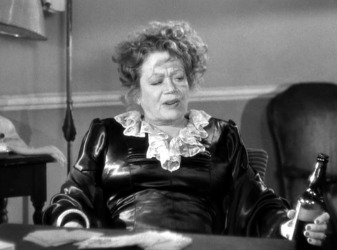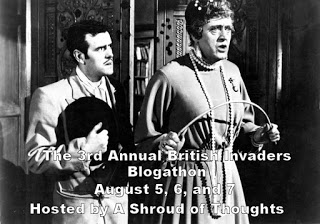
(WARNING: Major spoilers abound!)
There are a lot of people in Born to Kill who want only precisely what they can’t have.

Let’s start with the biggest one first. Sam Wilde (Lawrence Tierney) simply wants everything. He has an outsized sense of entitlement that would make Donald Trump look humble. To him, everything and everybody is a toy, intended for his amusement until he wearies of it and moves on to the next toy.

Helen Brent (Claire Trevor) has just finalized a divorce in Reno and already has another man waiting in the wings — her ostensible fiancee, a rich man named Fred (Phillip Terry). (Unaddressed in the movie is the fact that Helen is already engaged to Fred before the ink on her divorce paper has even dried. So chances are that her dalliance with Fred might have been at least one cause of the divorce.)
On the night that Helen is preparing to leave Reno to meet up with Fred in San Francisco, she happens to stop back at her boarding house one more time. There, she discovers that two people have been murdered. Helen takes the sight unusually quietly and doesn’t even phone the police about it. Nothing must delay her trip to Frisco, after all, so why get involved?
But Helen gets involved whether she wants to or not. On the ferry to her train, she strikes up a conversation with a dashing man: Sam, who unbeknownst to Helen was the one who committed the murders. The two hit it off, take the train to Frisco together, and then part ways, with the duo making a vague plan to meet up again in Frisco.

One night, Sam drops by unexpectedly while Helen is entertaining her foster sister Georgia (Audrey Long). Helen is heir to a fortune that Sam sees as his ticket to the good life. Since Helen has now dismissed Sam as a one-night stand, he figures he’ll take up with Georgia.

Lest I divulge any more of the plot, let me mention a couple more hangers-on who can’t have what they want. Mrs. Kraft (Esther Howard, Detour) is a boozy old spinster who runs the boarding house where the murder takes place. All she wants is good, mindless times, and she nearly pays for it with her life.

Marty (Elisha Cook Jr.) is Sam’s sycophant. All he ever wants is a crumb of Sam’s approval, which he rarely gets. (If Marty’s desperation to please Sam strikes you as a little more than platonic, you wouldn’t be the first moviegoer to think so.)

About the only one who gets what he wants is detective Albert Arnett (Walter Slezak), but that might be because he sets his sights pretty low. He uses a sparkling and expansive vocabulary in an attempt to rationalize his mercenary ways. As such, he’s about the only person in the movie who tells things like they really are, functioning as a rather sleazy Greek chorus. (For that reason, he’s probably my favorite character in the movie.)

All of this is directed to a noir-thee-well by Robert Wise, who seems to flitter around these lowlifes and regard them even more shadily than the verbose detective does. Claire thinks that all she has to do to avoid her part in a murder plot is to distance herself from it. But Fate has a way of drawing these similarly sketchy people together, like a rope that will quietly lasso them in and then draw a noose around each of their necks.
Born to Kill is a thoroughly gripping film-noir entry, a perfect movie to watch when you’re feeling down about your lot in life. It’s as if the movie was saying, “Relax — you could be one of these people.”














